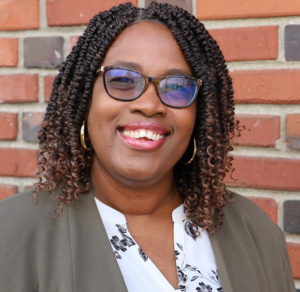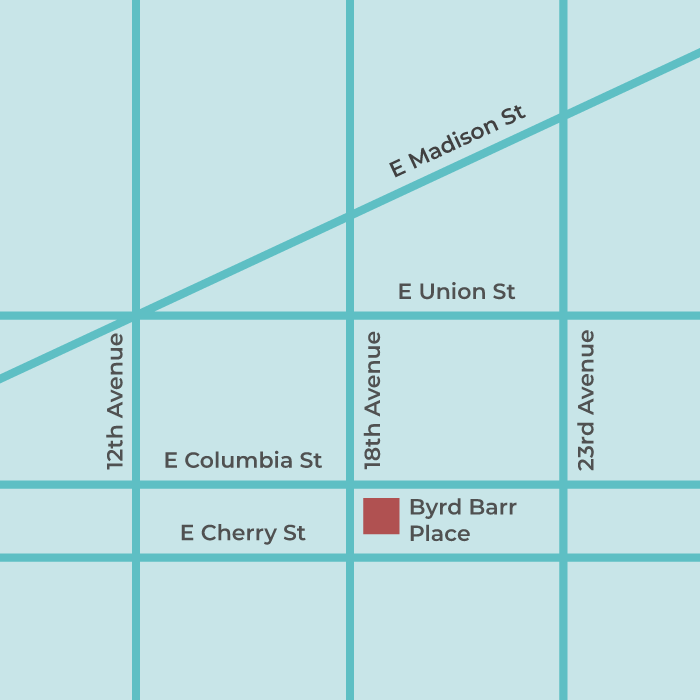Have you read Isabel Wilkerson’s Caste: The Origin of Our Discontents or seen Ava Duvernay’s film Origin — a fictional account of Isabel Wilkerson’s experiences researching and writing Caste? Both illuminate the humanity and the healing that is possible through reconciliation and reparations for Black Americans in the United States. Ultimately, reparations have the potential to heal all of us.
As the film Origin points out, current homeowners of the centuries-old home we call the United States may not be responsible for the flood in the basement. Still, as we are aware of the damage, we certainly are responsible for repairing and restoring this old home we inherited.
To achieve equity, we must confront the historical injustices endured by Black communities in the United States. In his Atlantic article “The Case for Reparations,” Ta-Nehisi Coates lists some of the blatant abuses and discrimination Black people have persevered through, “Two hundred fifty years of slavery. Ninety years of Jim Crow. Sixty years of separate but equal. Thirty-five years of racist housing policy.” He goes on to say, “Until we reckon with our compounding moral debts, America will never be whole.”
Considering this list, how do we become whole? I envision reparations as essential, and draw on some of the recommendations in the National African American Reparations Commission (NAARC) 10-Point Reparations Plan for what that could look like in Washington state — going beyond financial compensation.
A. The Right of Repatriation and Creation of an African Knowledge Program
The right of repatriation, allowing Black Americans the option to return to the motherland, along with creating an African Knowledge Program would foster cultural exchanges and educational opportunities that reconnect us with our African roots. This initiative aims to build a stronger identity and pride within the Black/ African American community by strengthening linkages to African nations of origin.
In Washington, descendants of Africans enslaved and forced to come to the U.S., in addition to immigrants from Somalia, Eritrea, Ethiopia, Tanzania, Chad, Egypt, and the wider African diaspora, deserve the opportunity to speak their home languages, visit their homelands, and educate their children in their cultural values and religious practices. Our legislature could move forward bills such as HB2282, which would convene a workgroup to develop African American Studies curricula for students in grades 7 to 12. Our public, charter, and private schools could also continue offering credit for world languages representative of the African continent. Actions like these honor our rich heritages and diversity.
B. The Right to Land for Social and Economic Development
Granting Black families, businesses, and non-profits the right to land ownership for sustainable development is crucial for economic empowerment. Reparations should include initiatives where private individuals, corporations, and foundations donate land to Black businesses, nonprofit organizations, or homeowners. Government-owned land, such as former military bases, can also be designated for Black communities to use free of charge.
C. Funds for Cooperative Enterprises and Socially Responsible Entrepreneurial Development
Reparations can address economic disparities by funding cooperative enterprises and socially responsible entrepreneurial development that spur job creation, sustainable economic growth, and wealth accumulation. For example, Byrd Barr Place’s partnership with Africatown, Black Community Impact Alliance, and Capitol Hill Housing to redevelop the Liberty Bank Building into affordable housing and retail space for Black and other people of color businesses could serve as a model. Black Well-being: Moving Toward Solutions Together, a report that Byrd Barr Place supported in partnership with the Black Future Co-op Fund, outlines community-identified approaches, such as ensuring well-structured access to credit and capital, resourcing spaces for Black entrepreneurs to share knowledge, and offering free, long-term business technical support.
D. Resources for the Health, Wellness, and Healing of Black Families and Communities
Prioritizing the well-being of Black families means allocating resources for health care, mental health services, and community wellness programs. Community-identified approaches to health in the Black Well-being report include funding Black-owned care centers; creating coordinated models of care that address all social determinants of health; and restructuring insurance. Collaboration among educational institutions, healthcare providers, and philanthropies can contribute to culturally sustaining health care and bridge existing health disparities.
E. Education for Community Development and Empowerment
Education should serve all students, with rich, integrated, and culturally relevant spaces that teach students how to grow into themselves and shape a better society. Reparations should focus on funding the Black community to plan how we want our education systems to function; utilize mastery- or competency-based learning toward self-actualization; and providing resources for high-quality early learning, scholarships, and vocational training programs. Byrd Barr Place is vital in building community connections through education. Our personal financial series empowers individuals to take control of their financial future by demystifying budgeting, credit, and saving.
F. Affordable Housing for Healthy Black Communities and Wealth Generation
Access to affordable housing is fundamental for community stability. Reparations should include policies and financial support for affordable housing initiatives, contributing to creating healthy, thriving Black communities and fostering generational wealth.
G. Strengthening Black America’s Information and Communications Infrastructure
Investing in technology, internet connectivity, and digital literacy is pivotal to socio-economic progress. Reparations should strengthen Black America’s access to information, ensuring equal participation in the digital age.
H. Repairing the Damages of the “Criminal Injustice System”
Reparations must fix systemic issues within the criminal justice system, and move to transformative justice, which is addressing harm in ways that don’t cause more harm or profit off of people being harmed, while supporting healing. Initiatives should be implemented to rectify the disproportionate impact of mass incarceration on the Black community, including criminal record expungement, police reform, and community-based alternatives to incarceration.
In conclusion, Washington state’s Black reparations must transcend financial compensation, aiming for a holistic approach that redresses historical injustices and enables healing. Byrd Barr Place aims to participate in the Seattle-King County African American Reparations Committee process to help create and implement a comprehensive reparations plan for local Black communities — and contribute to fostering a just and inclusive society for all.
This blog was written by Byrd Barr Place CEO, Dr. Angela Griffin in April 2024.



